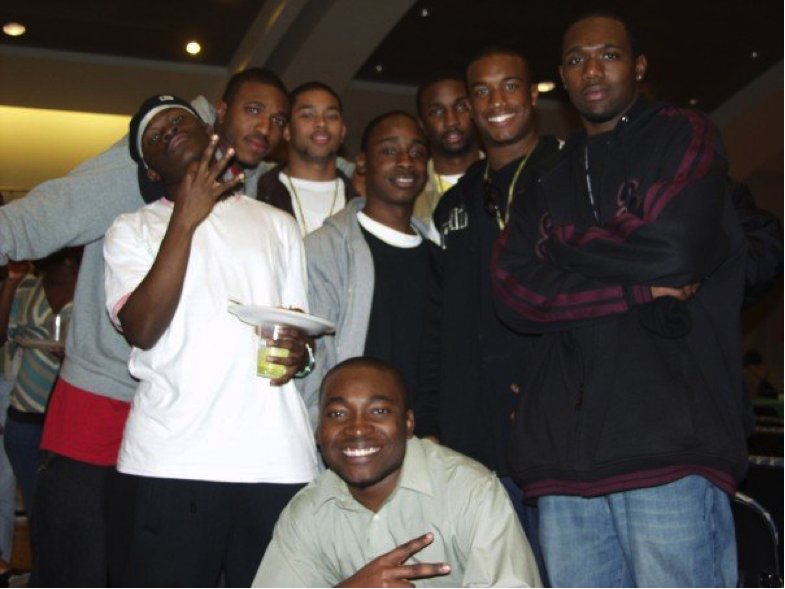The Real Issue with Diversity & Tech
What if I told you that the tech industry’s diversity problem is not the tech companies’ fault? Now, what if I told you that all the press we’ve heard on the subject over the last 2 plus years has been largely misguided? The statistics are abysmal. That cannot be denied, but as every data analyst can tell you, statistics only tell part of the story. The other parts lead to one conclusion: it’s about time that minorities started their own tech companies.
Stats Recap
Let’s get caught up. May 2014. Google releases its diversity numbers for the first time:

(https://googleblog.blogspot.com/2014/05/getting-to-work-on-diversity-at-google.html)
June 2014. Facebook releases its diversity numbers for the first time:

(http://newsroom.fb.com/news/2014/06/building-a-more-diverse-facebook/)
For the next few months, all hell broke loose online:
Here are the 2016 stats:

(https://www.google.com/diversity/)

(http://newsroom.fb.com/news/2016/07/facebook-diversity-update-positive-hiring-trends-show-progress/)
Not much different, right? Two years isn’t a long time, but the lack of any progress is somewhat concerning. Facebook and Google hardly make up the whole of Silicon Valley, but they are two of the biggest players in the area. They are indicative of the state of the rest of the industry.
It’s Not the Pipeline, It’s the Hiring
The “Pipeline” has been the hot topic of this whole conversation, but as a number of commentators have pointed out, the pipeline is not the problem. It’s the hiring. According to a 2014 USA Today story, “prestigious” colleges and universities graduate twice as many black and hispanic students with technology degrees as employers hire. These graduates were able to succeed in their studies with their peers, but somehow this did not translate to the workplace. Something is missing here.
It’s Tough Being a Minority in Tech
What do you get when you get a tech person from a nontraditional background? Someone who has no choice but to make it. Let me share some of my own story as an example. When I selected computer engineering as my major back in 2005, I had no idea what a computer engineer actually did. All I knew was that engineers created things, and I loved computers.
What happened next was the hardest 5 years of my life. Unbeknownst to me was the fact that so many of my classmates had been around computers and programming for years. It was somewhat deflating to know I was behind my peers before I even started. Minority engineers know this story all too well.
It takes a village to raise an engineer. I quickly found out that unless you were near genius level, you weren’t going to make it out of Computer Engineering alone. I found it difficult to find study partners, as I was often the only black person in my class. This was no surprise – people associate with those who are similar to them. As a result, I had to go out of my way to force myself into other social groups. Honestly, no one wants to study with the black dude. The other ethnic groups had their circles already, why did they need me? I had to go out of my way to prove my worth in my group projects.

Future engineers, designers, & doctors.
Added to this was the financial difficulty. I had to work as many as three jobs at a time to support myself on top of whatever loans I had to take out to stay in school for the semester. Speaking of loans, that was a nightmare in itself. Almost every semester at school I was threatened to get kicked out because my loans couldn’t get approved on my family’s credit. It was certainly a tough time. This story is not unique. It’s the everyday minority in tech story. There far more extreme encounters. It’s just hard to manage all of this as a teenager out on his own.
Add a little financial difficulty here, some working just to get by there, and you’ve got a situation where not many make it in a field that has the highest attrition rate of any major. There’s nothing to feel sorry for here though. Minorities are survivors. They have to hustle to get where they want to be. They have to endure being the outcasts for a few years. Despite all of this, they still succeed and make it through. Who wouldn’t want a candidate with this type of tenacity? This difference in experience between the peer groups can be a source of much creativity.
The Loud Minority
Whenever you log onto a social media platform, it is hard to avoid any recent trends that haven’t originated or been influenced by a minority culture. According to Nielsen’s report, “Young, Connected and Black”, 55% of African American’s spend an hour or more on social media compared to 49% of the rest of the population. The Hispanic Millennial Project reported that Hispanic Millennial’s Instagram use trails only that of African Americans among ethnic groups.
Minorities are the greatest social media influencers in the world and are among the most tech savvy people in the world. Why don’t they actually produce the technology? Does it make sense to keep contributing to platforms that do not serve the best interest of their communities? This is why minorities should create their tech companies. You simply will not see tech diversity numbers turn around any other way.
Over the last 2+ years, we’ve heard the word culture be thrown around repeatedly in the diversity discussion. While it is easy to get sick of hearing this, there is a logical reason for the emphasis. Let’s face it, company culture is the most difficult thing to change in an organization. Why is this? It starts from day one. You rarely ever hear a founder say I’m starting this company specifically with this culture when there’s only 3 people working on the project. The culture is just who this group of people is. Herein lies the problem. They will in turn hire people who are like them – people who fit into the culture. This culture and feel grows as the company grows. Sooner than you know it, you have an organization that looks like the rest of the companies in Silicon Valley. As a result, diversity initiatives won’t ever be reached.
Breaking into Tech
How do they go about it? Let’s say there are two groups of minorities out there now: those in tech and those outside. Those in you in tech have to realize how valuable you are. You are in the industry. You have contacts. You know what the deal is. If you don’t know how to create an application on the development platform of choice, you know someone who can point you in the right direction. Start working on something for yourself, regardless of how busy you are. You can keep kicking this can down the road, but you are only delaying the progress of those who come after you. If you have the ability to lead and create something, do it.
Those on the outside looking in: it’s time for you to get scrappy. As much as I’d love to tell you to jump in and start a technology enabled venture, I realize that’s a suicide mission. You need to be working within the tech environment first. If you intend to build something, then I’d suggest that you save up money for a few months, check out some financing options, and enroll in a coding bootcamp. This is a drastic change, but more and more of your peers are doing this right now. Do you want to look back at this period of time in a few years and regret that you didn’t take the chance because of some risk aversion? After you get your tech skills up, go work for a tech company. Give it a year a two and be a sponge. This is your chance to learn the game. Soak up all the information you can, both technical and strategic. When you think you’re ready, start working on your venture on the side.
There has never been an easier time in the history of the world to start a business. If you want a drastic change in the way minorities are represented in tech, you need to take drastic action. Minorities are survivors. Despite starting off a few steps behind, we still manage to succeed. Minorities are creators. We bring content to the world every day. It’s time that we also benefit from our contributions.

Leave a Reply